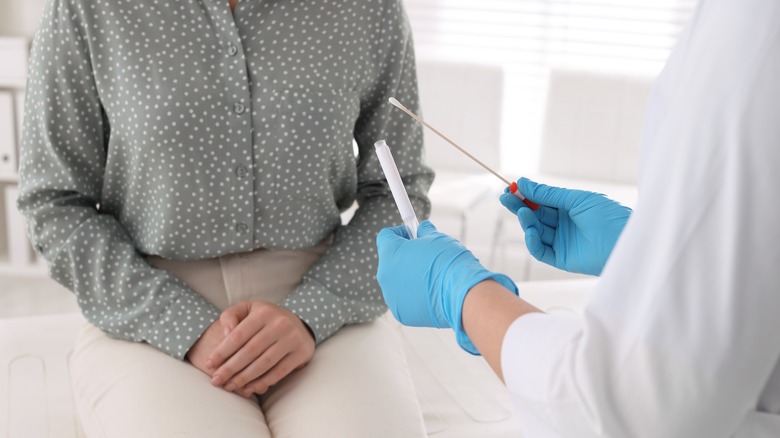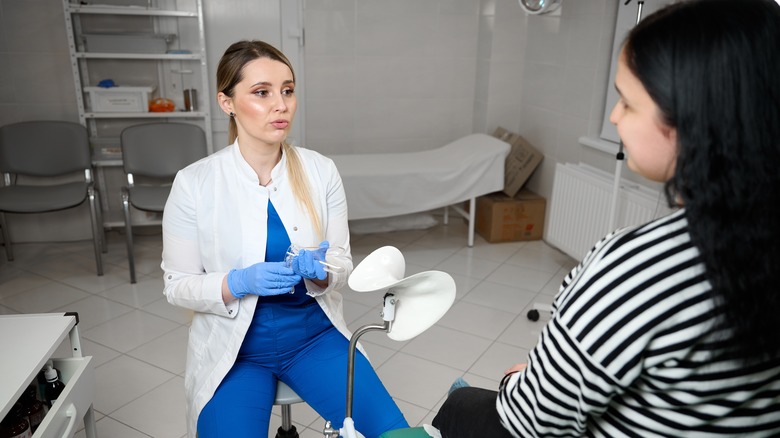The Speculum-Free Pap Smear Alternative We Can't Stop Thinking About
A Pap smear is an important part of healthcare for women. During this procedure, a woman will lie on her back on an examination table with her legs spread and her feet in stirrups. A gynecologist will then insert a device called a speculum in order to open up the vagina and allow for a sample to be collected from the cervix. Laboratory analysis can then be done to check the sample for abnormal cells. This valuable test can allow for early detection and treatment before abnormal cells go on to become cervical cancer (per Mayo Clinic).
Many women find Pap smears uncomfortable, humiliating, and sometimes even traumatic, according to reporting from The New York Times, especially if they have chronic vaginal pain or have been sexually assaulted. However, the news outlet reports that there is now an alternative to Pap smears that could alleviate some of these concerns — and it doesn't involve a speculum. A woman could collect her own sample using a swab similar to those used for COVID tests or with a device that looks similar to a tampon. This sample could then be tested for the presence of the human papillomavirus (HPV), the organism that causes most cases of cervical cancer.
An HPV test is an alternative to a Pap smear
In May of 2024, the U.S. Food and Drug Administration stated that they had approved expansions to the indications of use (IFU) of the Beckon, Dickinson and Co. Onclarity HPV Assay and the Roche Molecular Systems, Inc. cobas HPV Test. Previously these tests were only approved for use by physicians. Now, the IFU allows the patient to collect the sample provided it's done in a healthcare setting and their doctor believes that it's not possible to collect a sample any other way. The goal of this IFU is to expand access for women who otherwise might be unable or reluctant to obtain cervical cancer screenings.
MD Anderson Cancer Center explains that this screening method can be used when a pelvic exam isn't possible. One reason might be situations where people either don't have health insurance or access to care. It could also be used in cases where people experience pain or anxiety, have gone through past trauma, or have religious or cultural beliefs that don't allow them to do a standard test. Additionally, transgender men may feel more comfortable testing in this way.
When to get screened for cervical cancer
The American Cancer Society advises that cervical cancer screening should start when women reach the age of 25 and continue until age 65. An FDA-approved primary HPV test or a test that combines the HPV test with a Pap smear can be done every five years or a Pap smear alone can be performed every three years. The organization emphasizes that regular screening is what matters, not what test you choose to do. Additionally, they state that being vaccinated against HPV does not exempt you from screening.
Once women are older than 65, if they have had regular screenings for the previous decade with no abnormal Pap smears or HPV tests and no history of CIN2 or above within the past 25 years, they may cease screening. Women who no longer have a cervix can stop screening, as well, unless they have had previous treatment for cervical cancer.


